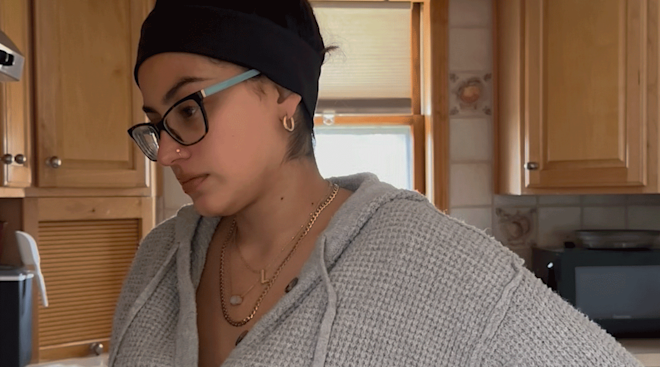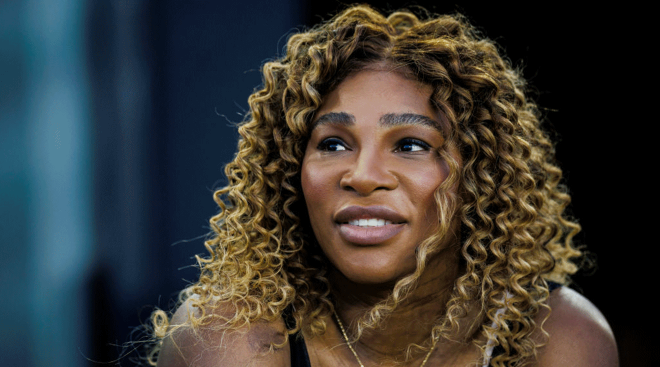Breastfeeding Challenges Black Moms Face (and How to Overcome Them)
Sterling Grey-Simmons was intent on breastfeeding her first child. There was just one problem: She didn’t have support. No other women in her family had ever nursed. “I am a first generation breastfeeder,” she says. “I literally had no earthly idea what I was doing.” Even at the hospital, there was little by way of instruction. “After I delivered, they brought him to me and said, ‘Mama, he’s hungry. Feed him,” she recalls. “And then they just left me. They didn’t help me.”
This is just one story. But it’s a common enough scenario that causes many Black moms to give up on their dream of breastfeeding. According to the Centers for Disease Control and Prevention (CDC), Black women have the lowest breastfeeding rates of any other group. Just 69.4 percent of Black moms breastfeed, compared to 85.9 percent of white moms. And those that do are more likely to stop sooner than other racial groups. Why? It’s not about having difficulty getting a good latch or enduring the pain of a clogged milk duct. There are complex social and emotional barriers that prevent many Black women from breastfeeding. Below, a few of the challenges driving this deep disparity—and some tips to help you overcome them.
“We have to look into the history to really understand how we got here,” explains Rachel Nicks, founder of Birth Queen, a nonprofit that provides education, support and training for moms and birth workers. She’s referring to the history of enslaved women being forced to breastfeed the babies of their owners, often leaving their own children underfed and malnourished. “If we rewind back to slavery, and us being wet nurses, our bond was beginning to be broken with our children then,” adds Nicks. It’s a vestige of slavery that experts say has a continued cultural impact. For generations, breastfeeding was seen as traumatic rather than the nurturing and bonding experience it truly can be. The good news: As more Black women choose to breastfeed, the cultural perception continues to evolve.
If your mom and grandmother didn’t breastfeed, you’re less likely to choose it or stick with it if it gets difficult. One of the biggest indicators of successful breastfeeding is having a support system. “I see it all the time,” says Tiffani Polk, RN, IBCLC, a nurse and lactation specialist at Mercy Medical Center in Baltimore. “Women come in and say they want to breastfeed, but their mother isn’t on board. And their mother is constantly saying things like, ‘Well, baby’s crying, you should just give him a bottle.’ And when you constantly hear comments like that from family or friends, it does kind of weaken your confidence in yourself and your body and in the process of breastfeeding. For some moms, that’s enough to just make them give up.”
As you research and learn about breastfeeding, include your mom, partner and friends in the process. Getting your support network on board with the decision will ensure a more successful outcome. The added benefit: As more Black moms choose to breastfeed, it normalizes the choice for communities of color across the country.
Most breastfeeding literature is heavily saturated with images of white breasts and pink nipples. That’s hard for many Black moms to relate to. “I think it’s very important to see yourself in all kinds of things,” says Grey-Simmons, who became a certified breastfeeding specialist and a full spectrum doula after her experience. Social media has certainly helped change the perception about breastfeeding. Consider following Instagram accounts like, Chocolate Milk Café and Black Women Do Breastfeed for tips and support. Even celebrities like Beyoncé and Cardi B opening up about their own nursing experiences makes the choice of breastfeeding more accessible to people of color. Follow other women’s stories of breastfeeding—and share yours when you’re ready.
Black women are more likely to be the primary earners in their households, which results in increased economic pressure to return to work after baby is born. Some women feel as though this leaves them with no choice but to choose bottle over breast. But providing baby with breast milk for any amount of time that you can is beneficial. Plus, some states have laws that protect a woman’s right to pump or express milk in the workplace. Talk to your HR department about setting up a privacy room and allowing for several short breaks a day to pump. Some women may be hesitant to advocate for themselves for fear of creating tension, but the law is likely on your side. Check to see if your state has protections in place for new moms here.
The process of breastfeeding should actually begin when a mom first starts thinking of her delivery. So many women think they will intuitively know what to do, and that’s not always the case. We need to change the conversation. “It’s about natural versus easy. Just because something is naturally occurring, like the body creating milk, you don’t necessarily know how to do it because you’ve never done it before and neither has your baby,” says Nicks. Education is key.
The problem is that communities where there’s a large African American population typically don’t have enough birth education classes—or the fee is cost prohibitive. Reach out to the hospital you plan to deliver at to find out if they offer free breastfeeding or parenting prep classes. It’s also a good time to ask if there are lactation consultants on staff that can help you once baby is born. Online classes are an option as well. Grey-Simmons created digital breastfeeding training, available on her website LoyalLactation.org, so that moms all over the country can learn how to feed their babies.
Research has shown that Black women are more likely to be advised to have a c-section. However, many expectant women aren’t aware that a c-section can affect your ability to breastfeed. “People think these procedures aren’t a big deal, [but they are],” says New York-based breastfeeding consultant Leigh Anne O’Connor. “There’s less conversation about what you would like, how you would like your birth.” While these procedures may be necessary, she says it’s important to ask questions and fully understand what your body will go through. Surgery could delay your milk production, or you could be too groggy to nurse immediately, and may need extra help supporting your newborn. Demand answers. You need to know what to expect so you can be in control of your birth experience.
About the experts:
Sterling Grey-Simmons, CBS, is a breastfeeding specialist and the owner of Loyal Lactation in the Atlanta area.
Rachel Nicks is the founder of Birth Queen, a nonprofit that provides education, support and training for Black moms and birth workers.
Leigh Anne O’Connor, IBCLC, LCCE, is a board-certified lactation consultant in the New York City area.
Tiffani Polk, RN, IBCLC, is a nurse and certified lactation consultant at Mercy Medical Center in Baltimore, Maryland.
Please note: The Bump and the materials and information it contains are not intended to, and do not constitute, medical or other health advice or diagnosis and should not be used as such. You should always consult with a qualified physician or health professional about your specific circumstances.
Plus, more from The Bump:
Navigate forward to interact with the calendar and select a date. Press the question mark key to get the keyboard shortcuts for changing dates.




















































